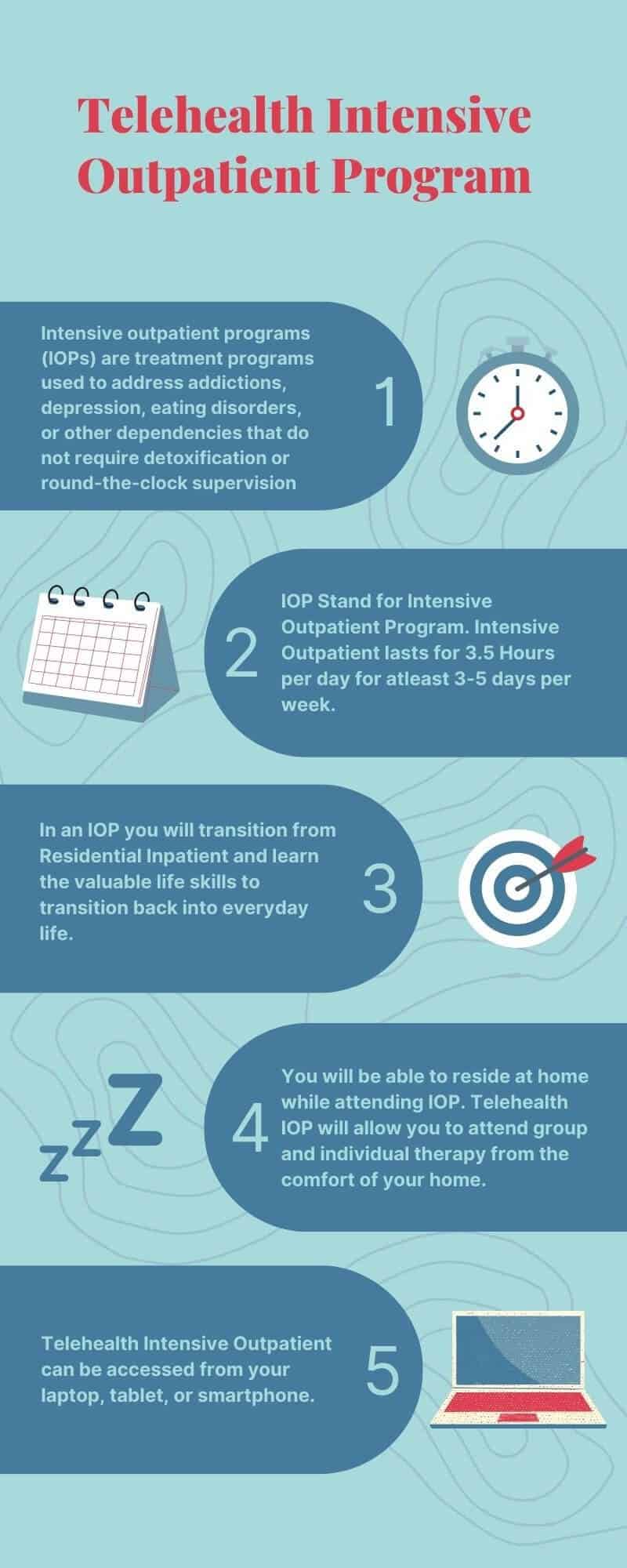The Effect of Holistic Therapies on Mind-Body Recovery in an Intensive Outpatient Program
In the realm of extensive outpatient programs, the unification of alternative treatments has actually sparked significant passion and discussion amongst experts in the area of psychological wellness and health. The prospective harmony in between traditional healing techniques and holistic methods in promoting all natural well-being continues to be a subject ripe for exploration and analysis.
Integrating Holistic Therapies in IOP
Incorporating holistic treatments into Intensive Outpatient Programs (IOP) can boost the general wellness and therapy outcomes of people seeking psychological wellness assistance. Holistic therapies concentrate on treating the entire person, dealing with not only the signs yet additionally the underlying sources of mental health issues. By incorporating practices such as yoga exercise, meditation, art treatment, and acupuncture right into IOP settings, people can experience a much more detailed technique to their therapy.

Benefits of Yoga Exercise and Meditation
By infusing IOP settings with all natural treatments like yoga and reflection, people can access an array of benefits that add to their psychological and emotional health - Intensive Outpatient Program (IOP). In addition, yoga exercise enhances self-awareness and promotes a feeling of inner tranquility, which can be specifically valuable for people undertaking intensive outpatient therapy.
Reflection, on the other hand, concentrates on training the mind to accomplish a state of clearness and psychological peace. By including meditation right into their routine, people in an IOP can learn to handle racing thoughts, boost focus, and cultivate an extra favorable overview on life. Reflection practices have been shown to minimize signs and symptoms of PTSD, boost psychological strength, and promote better rest patterns, all of which are vital elements of the healing procedure in intensive outpatient programs. For that reason, integrating yoga exercise and reflection right into IOP settings can considerably improve the psychological and emotional health of people looking for all natural healing.
Acupuncture for Mind-Body Recovery
Acupuncture, a standard Chinese medication practice including the insertion of slim needles into certain factors on the body, supplies a distinct method to mind-body healing by targeting energy circulation and promoting alternative health. This ancient strategy is based on the concept of Qi, the body's essential power, streaming along meridians or pathways. By stimulating specific acupoints, acupuncturists aim to restore the equilibrium of Qi, which is believed to be vital for overall wellness and well-being.

Additionally, acupuncture is significantly being incorporated into Western medication practices to enhance standard treatments for different mental health and wellness disorders, supplying an alternative approach that takes into consideration the interconnectedness of the body and mind in promoting recovery and wellness.
Mindfulness Techniques in Treatment
Expanding on the world of alternative treatments, mindfulness strategies play a critical role in therapy by fostering a much deeper connection between the mind and body for overall well-being. In the context of an extensive Discover More outpatient program, incorporating mindfulness techniques can assist individuals establish self-awareness, manage emotions, and reduce tension levels.

By urging individuals to observe their thoughts without add-on or judgment, mindfulness cultivates a feeling of acceptance and compassion in the direction of oneself. Eventually, integrating mindfulness techniques into treatment strategies can equip people to actively participate in their healing trip and promote holistic wellness.
Examining Alternative Treatments' Effectiveness

By incorporating quantitative data with qualitative comments, scientists can get a more alternative understanding of the effectiveness of these treatments in advertising mind-body recovery within an extensive outpatient program. Such evaluations are essential for informing evidence-based methods and maximizing alternative therapy strategies for people looking for detailed health.
Conclusion
In verdict, the assimilation of alternative treatments such as yoga, meditation, acupuncture, and mindfulness strategies in an intensive outpatient program can have a significant influence on mind-body recovery. These treatments provide an even more thorough method to treatment by resolving the physical, emotional, and spiritual facets of a person's well-being. Evaluating the efficacy of these alternative interventions is important in understanding their potential advantages in enhancing the overall recovery procedure for individuals in an outpatient setting.